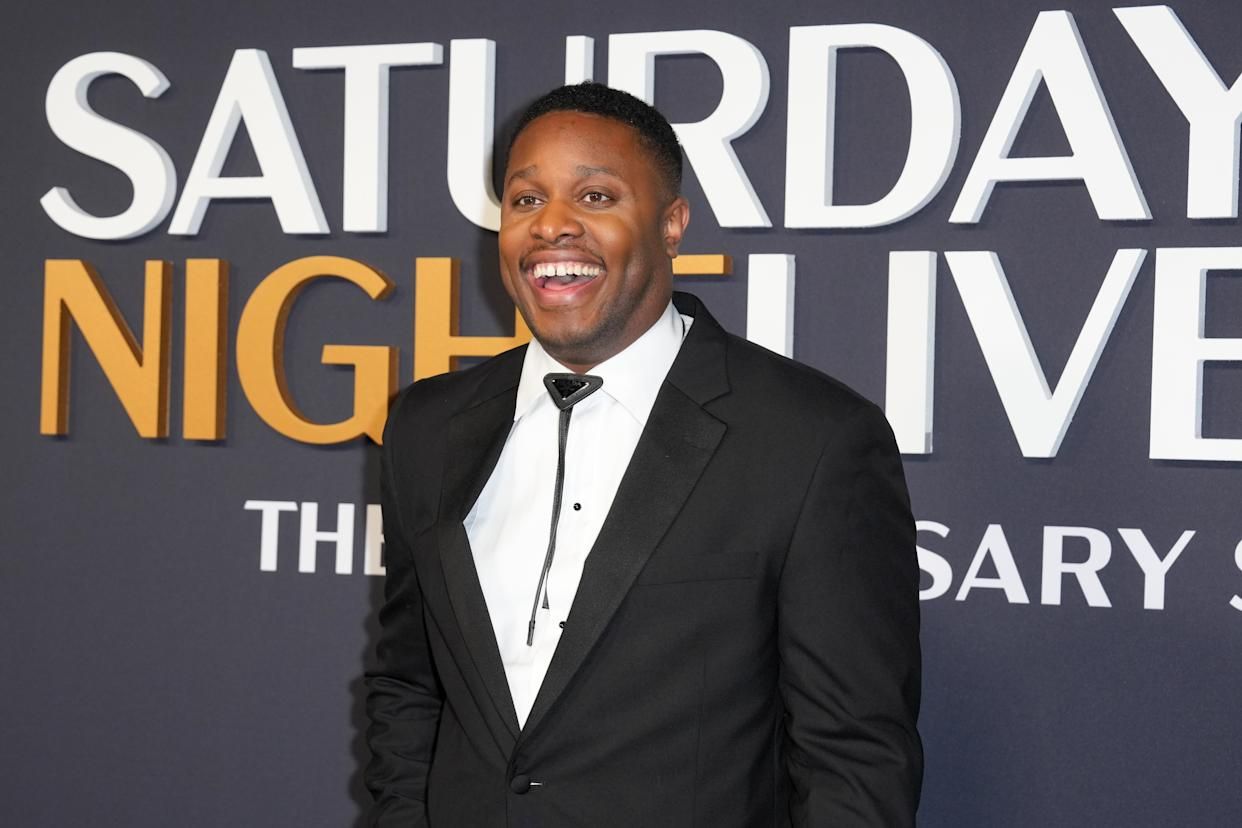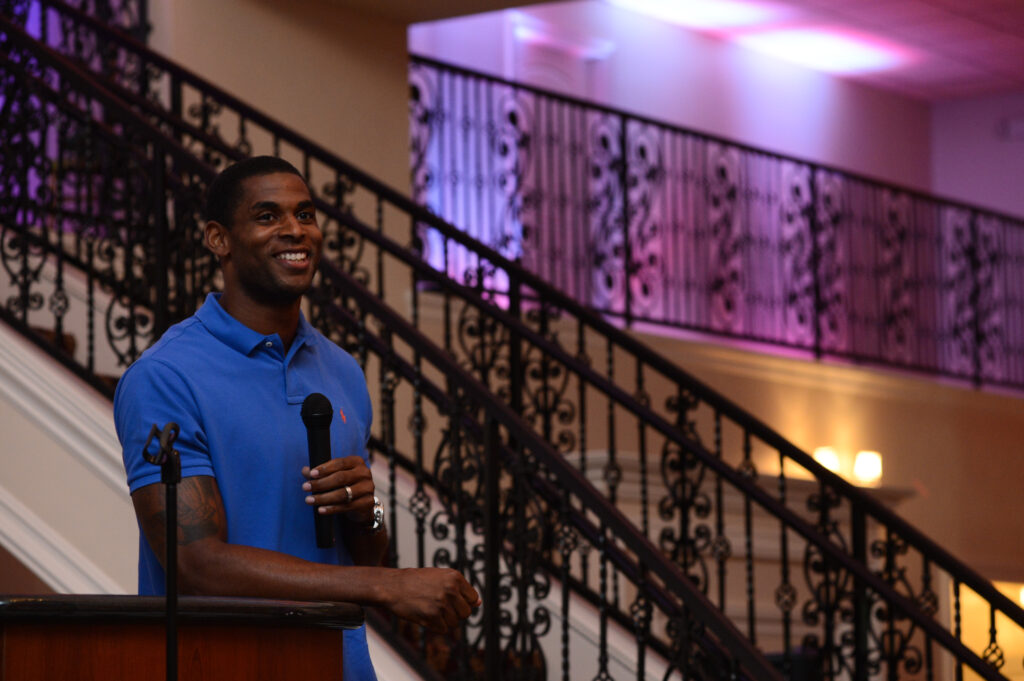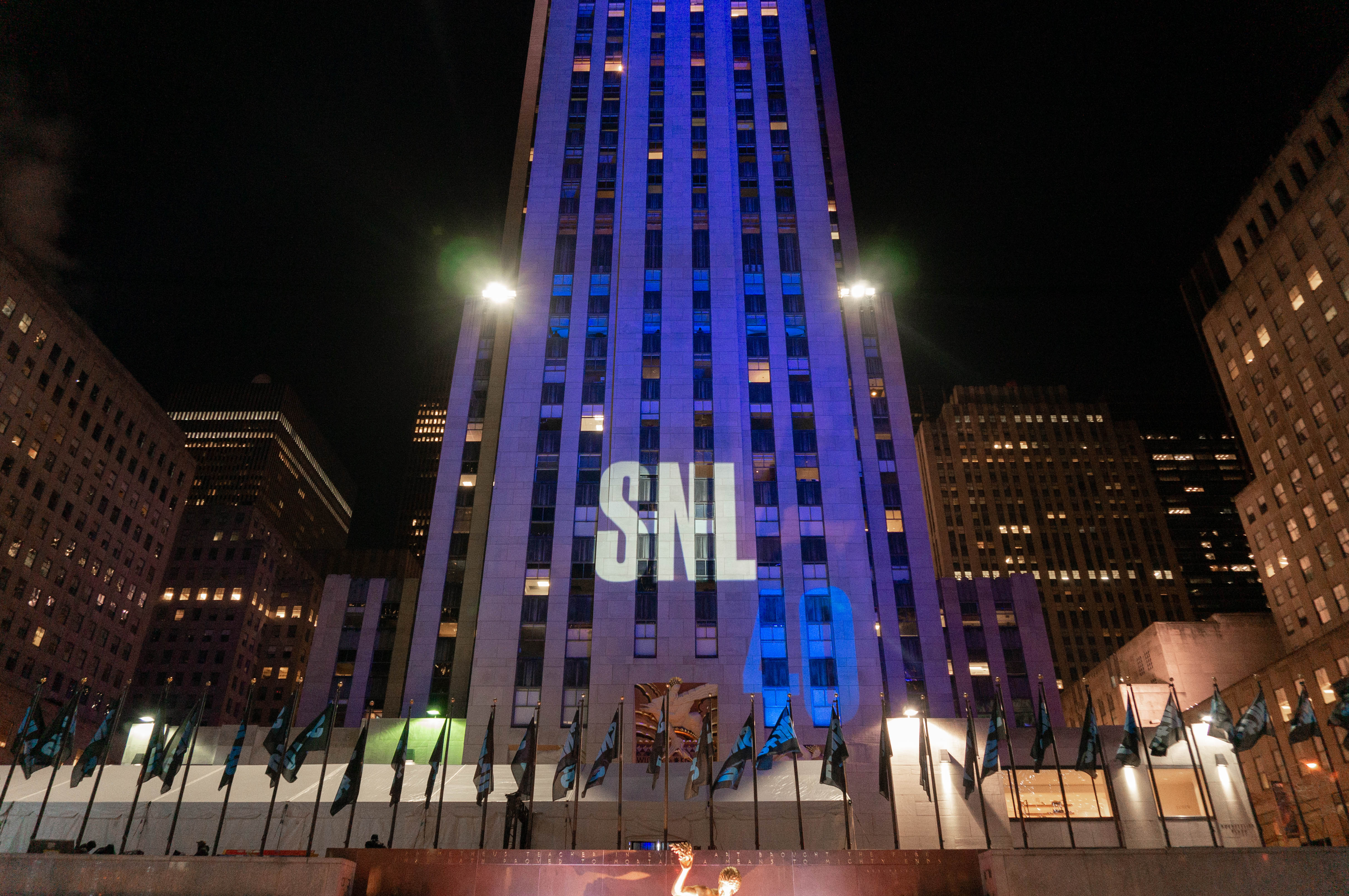
The recent announcement of Devon Walker’s departure from “Saturday Night Live” after three seasons has sent ripples through the entertainment industry, not merely as a cast change but as a profound moment of candid reflection on the realities of working within one of television’s most demanding and iconic institutions. Unlike the often-formal, carefully orchestrated exits typically seen in the high-stakes world of network television, Walker chose a refreshingly direct and personal route, utilizing his social media platforms to convey a message layered with both gratitude and a frank acknowledgment of challenges.
Walker’s decision to share his mixed feelings and future aspirations in an unvarnished manner has provided a rare, unfiltered glimpse behind the legendary curtain of 30 Rockefeller Plaza. His commentary arrives at a crucial juncture for “SNL,” a show perennially under scrutiny and facing its own significant structural shifts, as hinted by its long-serving creator. This moment transcends a simple cast member exit, inviting a deeper industry-wide conversation about creative environments, professional sustainability, and the evolving relationship between talent and the platforms that elevate them.
What unfolds is a narrative rich with personal insight, offering valuable lessons for creatives navigating the often-complex terrain of the entertainment business. Walker’s transparency serves as a powerful testament to the changing dynamics of public relations in the digital age, where authenticity can resonate more profoundly than carefully curated statements. His reflections on his time at “SNL” provide a unique lens through which to examine the pressures and triumphs inherent in such a celebrated yet demanding role.

1. **Devon Walker’s Candid Departure and Its Industry Resonance**Devon Walker’s announcement of his exit from “Saturday Night Live” was delivered not through a formal press release or a network-sanctioned statement, but via an Instagram carousel, succinctly captioned, “me and baby broke up ❤️.” This distinctly personal and casual approach immediately set his departure apart, signaling a break from traditional industry protocols and fostering an intimate connection with his audience and peers. The post notably included a screenshot of an “I’m out 🥳” text and a note titled “wait..did he quit or did he get fired?”, directly engaging with the inevitable speculation surrounding such a high-profile exit.
Walker’s choice to use his “own voice on social media” made the announcement feel “honest and low-key,” allowing him to control the narrative surrounding his departure. This direct communication enabled him to convey a nuanced perspective, sidestepping the often-impersonal tone of official statements. In an industry where public image is meticulously managed, Walker’s unfiltered disclosure offered a refreshing counter-narrative, reflecting a broader trend of talent leveraging personal platforms to speak directly and genuinely.
The casual yet deeply personal nature of his announcement resonated widely, sparking discussions across social media and media outlets about the authenticity it conveyed. By presenting his exit as a personal choice, akin to the end of a relationship, Walker framed the transition in relatable human terms rather than as a mere contractual cessation. This strategy not only humanized the professional change but also allowed him to preemptively address and shape the public’s understanding of his decision, emphasizing his agency in the matter.
This unfiltered approach is particularly noteworthy in an entertainment landscape increasingly defined by direct artist-fan engagement. Walker’s decision to bypass intermediaries underscored his comfort in sharing his truth, fostering a sense of trust and transparency that a more formal announcement might have obscured. It set a precedent for how public figures can navigate career transitions with a blend of professionalism and genuine vulnerability, offering an insider’s perspective without compromising personal integrity.

2. **The “Toxic as Hell” Revelation: Acknowledging Workplace Realities at SNL**Central to Devon Walker’s departure message was his strikingly candid assessment of his time at “Saturday Night Live.” In his Instagram note, he wrote, “Me and the show did three years together, and sometimes it was really cool. Sometimes it was toxic as hell.” This unvarnished description of the “SNL” environment offered a rare, unfiltered glimpse into the realities behind the scenes of one of television’s most prestigious comedy institutions, challenging the often-glamorized perception of such a coveted position.
Walker’s acknowledgment of both the highs and the significant lows of his tenure painted a complex picture, emphasizing that even amidst the dysfunction, he and his colleagues “made the most of what it was” and created a “f***ed up lil family.” This nuanced view highlights the intricate balance many entertainment professionals navigate in high-pressure environments, where creative collaboration often coexists with considerable stress and interpersonal challenges. The description of certain aspects of the SNL environment as “particularly difficult to navigate” suggests that workplace culture and dynamics sometimes created an unhealthy atmosphere.
Such a frank revelation about a “toxic” work environment is somewhat of a rarity among current or recently departed “SNL” cast members, making Walker’s honesty particularly impactful. It resonated deeply within the industry, prompting a broader conversation about mental health and professional well-being, especially in fields known for their intense demands and competitive nature. His candor allowed for discussions about the pressures performers face behind the camera, a topic that is rarely publicly discussed with such directness.
The fact that Walker felt comfortable enough to publicly articulate these challenges speaks volumes about a shifting industry paradigm where personal well-being is increasingly prioritized. His statement served as a reminder that even dream jobs come with their own set of profound difficulties, and that acknowledging these realities is a crucial step towards fostering healthier and more sustainable creative spaces. This transparency earned him a significant wave of support from fans and colleagues who appreciated his sincerity.

3. **”Little Marriages”: Walker’s Metaphor for Entertainment Careers**Devon Walker articulated his perspective on professional longevity in the entertainment industry through a compelling metaphor: “To me, jobs in this industry feel like a bunch of little marriages.” This comparison underscores the deeply personal and often emotionally invested nature of creative careers, where professional relationships, projects, and roles can feel profound and enduring, yet are frequently temporary.
He elaborated on this sentiment by stating, “Some of em last for a long time if we’re lucky, but most of them are fleeting. Permanent until they’re not. That’s the deal. You know what it is it when you sign up.” This insightful observation reflects a mature understanding of an industry characterized by constant flux, project-based work, and the cyclical nature of shows like “Saturday Night Live.” It suggests a philosophical acceptance of impermanence as an inherent aspect of the profession, a mindset crucial for maintaining resilience in a volatile career landscape.
Walker’s metaphor serves to depersonalize the concept of a job ending, reframing it not as a failure or a rejection, but as a natural conclusion to a specific chapter. By comparing it to a marriage, he highlights the intensity of the commitment and emotional involvement, while simultaneously acknowledging that not all relationships are meant to last forever. This poised description explains why his decision sounded personal rather than dramatic, providing a framework for understanding his choice to move on after three seasons.
This perspective offers valuable commentary on the often-unspoken realities faced by artists and performers, where the next opportunity is rarely guaranteed, and adapting to change is paramount. His words resonate with anyone in a project-driven field, emphasizing the importance of embracing each experience for what it is—a significant, albeit potentially finite, chapter in a larger professional journey. It champions a proactive approach to career management, recognizing when it’s time to seek new creative partnerships or opportunities.

4. **Forging Bonds: The Enduring Value of Comedy Community and the DAD Show**Amidst his candid revelations about the challenges at “Saturday Night Live,” Devon Walker made sure to emphasize the profound positive relationships he cultivated during his tenure. He specifically extended gratitude to fellow writers Alex English and Gary Richardson, highlighting the deep bonds formed within the comedy community. This acknowledgment underscores the critical role that camaraderie and shared experiences play in navigating the high-pressure environment of live television production.
Walker fondly recalled their shared journey, noting that the three of them “really went from running a bar show to working together at 30 Rock!” This trajectory refers to their collaboration on the DAD comedy show at New York City’s Jane Hotel, a grassroots venture that predated their “SNL” appointments. This detail not only speaks to their personal friendship but also illustrates a common pathway for comedians, where independent, community-driven projects serve as vital incubators for talent and launchpads for mainstream opportunities.
These friendships appear to have provided invaluable support and artistic growth opportunities, helping Walker navigate both the positive and negative aspects of his “SNL” experience. In an industry where competition can be fierce, the solidarity demonstrated by such collaborations offers a powerful counter-narrative, emphasizing the strength found in creative partnerships. Their shared history, from the intimacy of a bar stage to the national platform of “SNL,” symbolizes the enduring power of community in fostering resilience and success.
Walker’s celebration of this teamwork and friendship, even while naming the hard parts of his job, reflects a balanced perspective on his overall experience. It suggests that these personal connections were fundamental to making the work worthwhile, providing a foundation of mutual understanding and encouragement. This aspect of his departure message serves as a reminder that beyond the professional demands, the human connections forged within the industry often form the most cherished and enduring legacies.

5. **Beyond 30 Rock: Walker’s Vision for Future Endeavors**Rather than concluding his departure announcement with reflections on the past, Devon Walker consciously shifted focus to his future, articulating clear and ambitious career aspirations. This forward-looking perspective underscored his readiness for new ventures, framing his “SNL” exit not as an ending, but as a deliberate opening of a new chapter. He revealed immediate plans for an upcoming trip to Japan, signaling a desire for rest, new experiences, and a break from the demanding weekly schedule of sketch comedy production.
More significantly, Walker expressed a keen interest in transitioning into dramatic acting roles, stating, “When I get back I’m tryna be in a prestige drama. Ideally something with Julianne Moore.” This specific mention of a critically acclaimed actress and the genre of “prestige drama” indicates a serious artistic ambition beyond the comedic realm that defined his “SNL” tenure. It highlights a desire to challenge himself in different capacities and explore a more diverse range of performance skills.
This pivot suggests a strategic career evolution, where his “SNL” experience, while valuable, is viewed as preparation for a broader and more varied entertainment career. The pursuit of dramatic roles speaks to a desire for artistic depth and a different kind of creative fulfillment, moving away from the weekly grind of live sketch comedy. Such a transition reflects the versatility often required for sustained success in Hollywood, where talent must continually adapt and expand their repertoire.
Walker’s optimistic outlook, coupled with concrete plans, conveyed a sense of agency and purpose in his career path. His lighthearted conclusion, encouraging followers to “stay hydrated and getting some money today,” maintained his characteristic humor while subtly reinforcing his focus on personal well-being and continued professional growth. This vision for the future solidifies his departure as a proactive step towards a deliberately crafted artistic journey.
Read more about: From the Stage to the Backstage Drama: What Really Happened to Devon Walker at SNL

6. **The Immediate Aftermath: Clarifying the “Good News”**Recognizing that his candid comments about the “toxic” aspects of his “Saturday Night Live” experience might be misconstrued, Devon Walker promptly followed up with an Instagram Story designed to unequivocally frame his departure in a positive light. This swift clarification was a deliberate move to manage public perception and ensure his message was interpreted as one of growth and opportunity, rather than disappointment or regret. He explicitly stated, “just to be clear, this is good news!! it was just time for me to do something different.”
Walker’s direct request to his audience, “Please don’t be hitting me with the ‘im so sorry’ we not on that at ALL,” further emphasized his desire for a celebratory, forward-looking response to his news. This instruction underscored that his decision was a conscious, empowered choice, reflecting personal and professional evolution rather than a setback. It served to redirect any potential sympathy towards understanding and support for his new path, reinforcing his agency in the transition.
His analogy, “sometimes mom and dad just don’t see things eye to eye,” offered a relatable and mature way to explain the mutual separation without assigning blame or dwelling on conflict. This metaphor suggests an underlying respect for “SNL” and the opportunities it provided, even while acknowledging that his personal and artistic trajectory diverged from what the show could offer. It speaks to a professional wisdom that allows for the recognition of challenges without negating the overall value of an experience.
This immediate follow-up demonstrated Walker’s keen awareness of how his words could be interpreted and his proactive approach to shaping his narrative. By asserting that his departure was “good news,” he successfully reframed the conversation, ensuring that his exit was perceived as a positive, self-directed step in his career journey. This strategic communication highlighted his emotional maturity and thoughtful consideration of his public message.

7. **An Unfiltered Look: Walker’s Social Media Strategy**Devon Walker’s decision to announce his “Saturday Night Live” departure primarily through an Instagram carousel and subsequent Instagram Story represents a modern, unfiltered approach to career transitions in the entertainment industry. Rather than opting for a traditional press release issued by representatives, Walker leveraged his personal platform to deliver the news directly to his followers, making the announcement feel inherently “honest and low-key.”
This direct communication strategy allowed Walker to present his narrative in his own voice, injecting his signature humor and candor into what could otherwise have been a sterile corporate announcement. His brief caption, “me and baby broke up ❤️,” followed by a more detailed note titled “wait..did he quit or did he get fired?”, effectively engaged with anticipated questions and personal sentiments. This personal touch fostered an immediate and authentic connection with his audience, contrasting sharply with the often-guarded nature of celebrity statements.
By choosing Instagram, Walker bypassed the filter of conventional media, allowing him to control the tone and content of his message entirely. This move not only showcased his authenticity but also provided an unmediated glimpse into his thought process regarding the exit. It emphasized his personal agency and provided a platform for him to articulate both the “really cool” moments and the “toxic as hell” aspects of his “SNL” experience without external editing or interpretation.
This approach is indicative of a broader shift in how public figures manage their careers and communicate with their audience in the digital age. It demonstrates an understanding that an artist’s personal brand is often best conveyed directly, fostering a more genuine connection and allowing for nuanced explanations that might be lost in official statements. Walker’s social media strategy, therefore, served not just as an announcement, but as a testament to his character and his desire for transparency in his professional life.

8. **Lorne Michaels’ Anticipated Cast Shake-up for Season 51**Devon Walker’s departure emerges at a pivotal juncture for “Saturday Night Live,” closely following pronouncements from the show’s venerable creator, Lorne Michaels. In an interview shared by Puck, Michaels unequivocally stated that a “significant shake-up” was anticipated for the show, with “several” cast members expected to transition out. This commentary, delivered just days before Walker’s public announcement, set the stage for a period of considerable transformation within the institution.
Michaels’ remarks underscored the deliberate nature of these forthcoming changes, indicating that while no cast members had officially announced their departure immediately after the 50th season’s conclusion, an evolution was imminent. He specifically answered “yes” when queried about shaking things up, adding, “It’ll be announced in a week or so,” signaling a carefully planned strategic shift for the program. This anticipation from the top management suggests Walker’s exit is not an isolated incident but rather an early indicator of a broader restructuring.
The timing of Michaels’ interview, coupled with Walker’s and other personnel announcements, paints a clear picture of an organization preparing for its next chapter. The show, which famously reinvents itself, appears to be entering one of its more pronounced periods of change, aimed at refreshing its comedic talent and adapting to evolving audience expectations. This strategic foresight from Michaels has historically been a cornerstone of SNL’s enduring success, allowing it to remain relevant across decades.

9. **The Broader Exodus: Other Key Departures Alongside Walker**Walker’s announcement did not occur in isolation but was part of a larger, coordinated series of departures that underscore the extensive nature of the impending changes at “Saturday Night Live.” On the very same day as Walker’s post, writer Celeste Yim, known as the show’s first nonbinary and out trans writer, also announced their exit after five seasons. This concurrent news signals a more widespread shift in personnel, extending beyond the on-screen talent to the crucial writing staff.
Yim’s Instagram post, while celebrating the dream-come-true aspect of the job, also candidly highlighted the strenuous realities behind the scenes, noting it was “grueling and I slept in my office every week.” Such an honest portrayal, mirroring some of Walker’s sentiments, reinforces the high-pressure environment prevalent at 30 Rockefeller Plaza. Writer Rosebud Baker also announced her departure, further illustrating the significant creative turnover.
Beyond these immediate announcements, the context indicates a pattern of recent departures, with Molly Kearney, Punkie Johnson, and Chloe Troast having left the show in 2024 between seasons 49 and 50. Notably, Troast stated her exit was not her decision, underscoring that not all departures are voluntary. These multiple exits suggest a concerted effort by the show’s leadership to recalibrate its roster, hinting at a more extensive overhaul than typically observed in seasonal transitions.

10. **Historical Precedent: SNL’s Cycles of Reinvention**”Saturday Night Live” has a well-documented history of reinvention, a foundational aspect of its longevity and cultural impact since its debut in 1975. The show has consistently navigated cycles of cast changes, famously bringing in new talent while bidding farewell to established stars, ensuring its comedic voice remains fresh and reflective of contemporary culture. This inherent fluidity is crucial for a program that relies on topical humor and a dynamic ensemble.
The long-running NBC program has often seen its cast members, ranging from early icons like John Belushi and Dan Aykroyd to more recent stalwarts such as Kate McKinnon and Kenan Thompson, depart to pursue other ventures. These transitions are not merely routine but are often moments of significant recalibration, allowing the show to integrate new perspectives and comedic styles. The “annual ‘Saturday Night Live’ cast shakeup has officially begun,” as one report noted, framing these events as an expected part of the show’s lifecycle.
Historically, “SNL” embraces this turnover during its hiatuses, utilizing the break between seasons to introduce new faces and bid farewell to others. This strategic approach prevents stagnation and ensures a continuous infusion of “new blood” into the cast and writing rooms. Walker’s exit, therefore, aligns with a long-standing tradition of evolution at “SNL,” positioning it as another chapter in the show’s remarkable ability to adapt and thrive over five decades, constantly redefining its comedic identity for new generations of viewers.

11. **The Mental Health Dialogue: A Growing Industry Concern**Devon Walker’s candid assessment of his “Saturday Night Live” experience, openly labeling parts of it as “toxic as hell,” has significantly amplified the ongoing conversation surrounding mental health and professional well-being within the high-pressure entertainment industry. His honesty about workplace difficulties resonates deeply, moving beyond mere speculation to provide a direct, albeit personal, account of the challenges inherent in such demanding roles. This public disclosure contributes to a broader understanding of the toll creative industries can take on individuals.
His openness has garnered a significant wave of support from both fans and industry colleagues, who commended him for prioritizing his mental health and career development. The acknowledgment that the “pressures performers face behind the camera” are often immense and rarely discussed with such directness underscores the importance of Walker’s statements. In a field characterized by intense scrutiny, long hours, and fierce competition, speaking out about a “less than favorable” work environment is a powerful act.
Walker’s candor underscores a shift in industry paradigms, where personal well-being is increasingly recognized as a critical factor in career sustainability. His reflections serve as a vital reminder that even highly coveted positions within iconic institutions come with profound personal and professional challenges. This dialogue is crucial for fostering healthier, more transparent creative spaces where artists can thrive without compromising their mental or emotional health, advocating for an environment that supports comprehensive well-being.

12. **SNL’s 50th Season: A Turning Point for the Iconic Show**”Saturday Night Live” recently concluded its landmark 50th season, an extraordinary milestone that saw the show celebrate its half-century legacy with much fanfare. Leading into this commemorative period, creator Lorne Michaels had made a strategic decision to maintain cast stability, aiming to prevent any “disruptions” during such a significant anniversary. This approach ensured that the ensemble remained largely intact, allowing for a seamless celebration of the show’s history and enduring impact.
However, this period of stability was explicitly understood to be temporary, a holding pattern before a major restructuring. Michaels himself teased significant changes for Season 51, indicating that while the 50th season was about continuity, the subsequent one would be about evolution. This impending shake-up was a topic of widespread speculation among fans and industry observers, with the season finale offering playful nods to theories about cast member departures.
Amidst these anticipated changes, Michaels did confirm at least one key return: James Austin Johnson, known for his portrayal of President Donald Trump, is set to remain a cast member. This specific detail provides a glimpse into the show’s ongoing strategic planning, balancing continuity with the infusion of new talent. The upcoming 51st season, scheduled to premiere on October 4, is poised to usher in a new era, shaped by these deliberate decisions and fresh comedic voices, as SNL continues its tradition of reinvention.

13. **Walker’s Exit as a Deliberate Career Strategy**Devon Walker’s departure from “Saturday Night Live” extends beyond a mere conclusion to a chapter; it signifies a deliberate, strategically planned career evolution. His immediate shift in focus, announcing a trip to Japan and expressing a clear ambition to pivot into “prestige drama,” particularly with a specific interest in working alongside Julianne Moore, illustrates a proactive and intentional redirection of his professional trajectory. This is a move calculated to expand his artistic repertoire beyond the comedic realm that defined his tenure at SNL.
Framing his exit as “good news” and emphasizing that it was “just time for me to do something different,” Walker consciously positioned his decision as one of empowerment and growth. This communication strategy highlights his agency in shaping his career path, opting for new challenges rather than remaining in a role that, despite its prestige, no longer fully aligned with his evolving aspirations. His perspective of industry jobs as “little marriages” supports this, suggesting a mature understanding of career impermanence and the need to seek new partnerships when the current ones reach their natural conclusion.
This strategic transition showcases a professional wisdom often required for sustained success in Hollywood. It demonstrates an artist’s ability to recognize when it is time to move on, to pursue different creative fulfillments, and to actively craft a diverse and challenging artistic journey. Walker’s actions, from his social media narrative to his future plans, collectively present his departure as a thoughtful, self-directed step towards a broader and more varied entertainment career, indicative of a mature approach to navigating the industry.

14. **Navigating Public Perception: The Art of the Celebrity Exit**Devon Walker’s handling of his “Saturday Night Live” departure offers a compelling case study in modern celebrity public relations, particularly in the art of managing public perception during a career transition. By opting for a direct-to-audience approach via Instagram, rather than a traditional, often sterile, press release, Walker seized control of his narrative from the outset. His initial post, playfully captioned “me and baby broke up ❤️,” set a personal and relatable tone, effectively pre-empting impersonal speculation.
Crucially, his immediate follow-up Instagram Story, explicitly clarifying that his departure was “good news” and requesting followers not to offer condolences, demonstrated a keen awareness of how his candid comments about the “toxic” aspects of SNL might be misconstrued. This swift and deliberate action allowed him to reframe the conversation, ensuring his exit was perceived as a positive, empowered step rather than a setback or source of regret. His analogy of “sometimes mom and dad just don’t see things eye to eye” provided a mature, non-confrontational explanation for the separation.
This strategic communication reflects a growing trend among public figures to leverage personal platforms for authentic engagement, fostering a genuine connection with their audience while managing their professional image. Walker’s approach not only showcased his authenticity and sense of humor but also highlighted the importance of a nuanced narrative in the digital age. His ability to articulate both the highs and lows, yet steer the overall sentiment towards optimism, underscores his emotional maturity and thoughtful consideration of his public message, proving instrumental in shaping a supportive public response.

15. **The Future Landscape: What These Departures Signal for SNL**The collective departures of Devon Walker, Celeste Yim, and Rosebud Baker, coupled with Lorne Michaels’ declarations of an impending “significant shake-up,” strongly signal a period of profound re-evaluation and transformation for “Saturday Night Live.” Walker’s candidness about the “toxic as hell” aspects of his experience, echoed by Yim’s descriptions of a “grueling” work environment, initiates a critical dialogue that extends beyond individual career choices to the very culture of high-pressure entertainment institutions.
These exits, occurring as “SNL” prepares for its 51st season after a landmark 50th, suggest a strategic realignment of the show’s talent and creative direction. The move away from the traditional model of prolonged cast tenures towards a more dynamic, potentially shorter-term engagement, reflects an industry grappling with evolving demands for talent, mental well-being, and artistic fulfillment. It underscores the challenges inherent in maintaining a career on a high-profile, long-running show like SNL, emphasizing the necessity of individual growth and knowing when to pursue new ventures.
Ultimately, this moment of transition invites introspection across the entertainment industry regarding workplace sustainability and the balance between creative ambition and personal well-being. Walker’s departure, viewed within this broader context of cast and writer turnover, appears not as an isolated incident but as a deliberate step within a larger reshaping of “SNL.” It signifies a show, and an industry, in constant flux, where the pursuit of innovative comedy must increasingly coexist with a commitment to fostering healthier and more supportive creative environments for its invaluable talent. The stage is set for a refreshed “Saturday Night Live,” as it navigates these complex currents into its next half-century.
As the curtains prepare to rise on “Saturday Night Live” Season 51, the reverberations of these shifts will undoubtedly inform its new comedic landscape. The departures, particularly Walker’s articulate and transparent exit, offer not just a glimpse into the inner workings of an iconic show but also a broader commentary on the evolving dynamics of talent, well-being, and creative autonomy in the entertainment world. The industry, and SNL specifically, stands at an exciting, albeit challenging, precipice, poised to redefine its future by embracing change and prioritizing its most valuable asset: its artists.”



